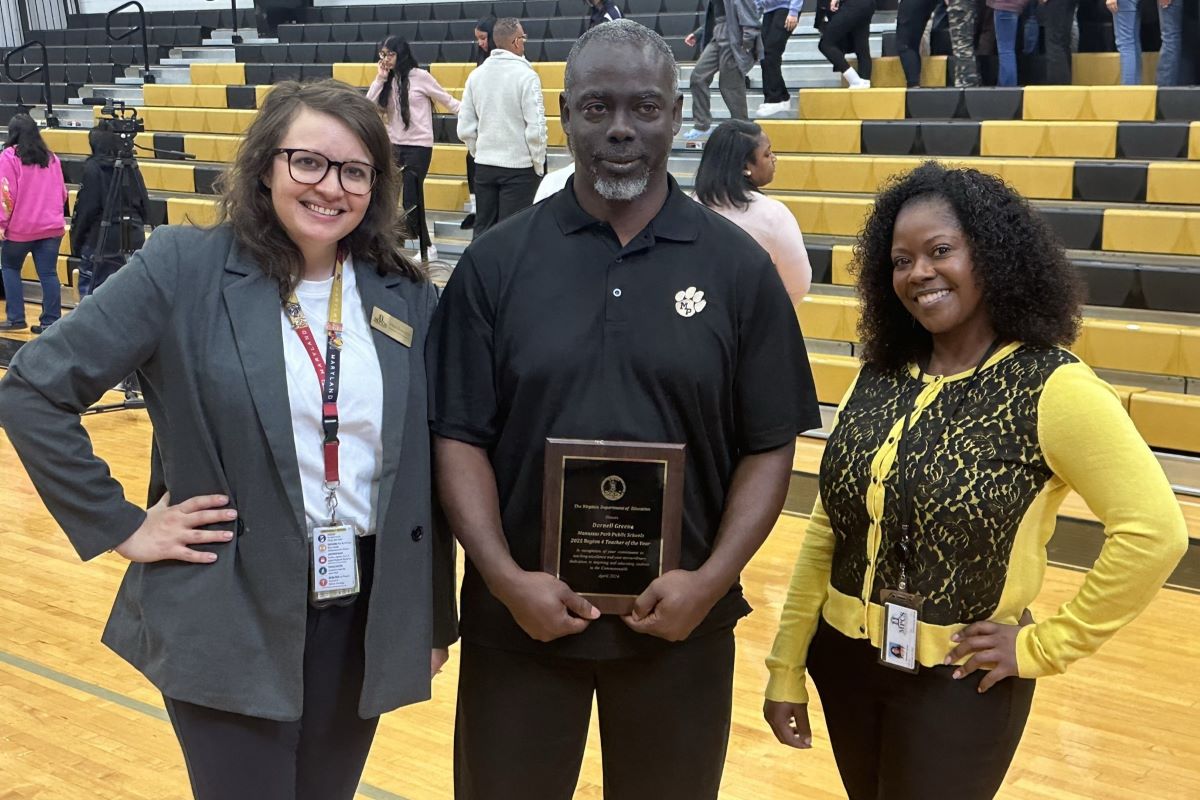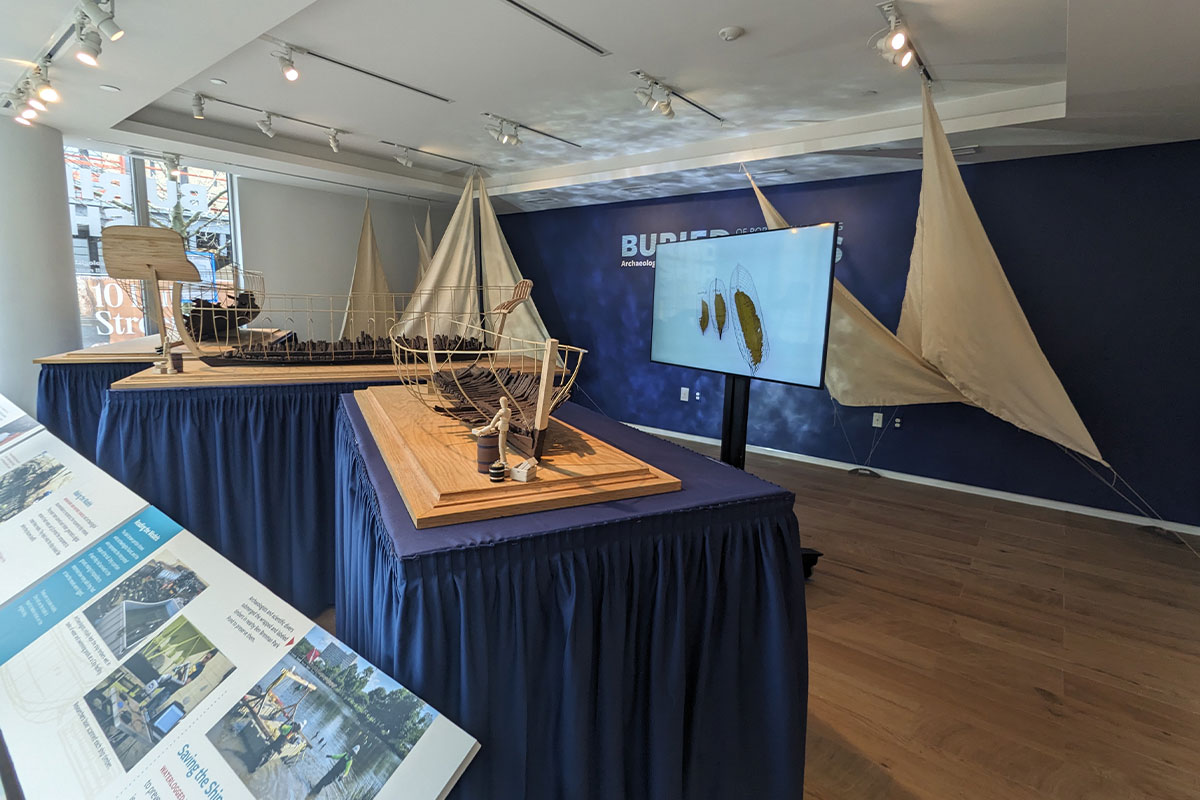
For children, it’s obvious what summer’s about. Wasting the day in front of the TV, hanging with friends or maybe exploring the outdoors. But for many parents, it’s an uncertain time of year. Summer learning loss, or “the summer slide,” threatens all the progress children made in the classroom during the year, and parents don’t always know the right way to combat it.
“On average, students’ achievement scores declined over summer vacation by one month’s worth of school-year learning,” according to a 2017 report from the Brookings Institution. Reading loss in particular is most dramatic for lower income students, and a lack of learning opportunity for elementary-aged students over the summer can also result in achievement gaps in high school, according to Brookings.
“It’s typical to have kids come back in the fall with a little bit of a slide,” says Erica Allder, a fourth-grade teacher at Frederick Douglass Elementary School in Leesburg and a Loudoun Education Association representative. “Keeping them going in their reading—and writing about what they’re reading—and even just practicing math facts, are the basic things that will keep them on track for where they need to be.”
For children K-12, establishing a daily learning routine, immersing themselves in reading of their choice and going on educational trips—even if it’s just to the library—can help preserve the knowledge they acquired during the year, according to Allder.
The National Education Association (NEA) cites research from the University of Tennessee at Knoxville that revealed “giving kids 12 books to read over the summer was as effective as summer school in raising the students’ reading scores.” Allder echoes the idea that reading can be a panacea for summer learning loss.
“The biggest thing I always tell everybody is just to keep them reading,” she says. “Kids are going to have their preferences just like we do as adult readers. I tell my students and I tell my parents that as long as they’re reading and they’re still enjoying it—especially at a young age when you’re trying not to depress their love of reading—let them read whatever and whenever they want.”
The NEA encourages parents to stay consistent throughout the summer with the educational resources their children have during the school year. Depending on the child, this could mean the structure of a weekly tutor (see page 101 for more about summer tutors), or enrollment in summer school or other academic summer programs. Before making a summer plan, checking in with teachers is a must, Allder says.
“I’ve had parents in the past just send me an email or even call to say, ‘Hey, we’re trying to make a plan for the summer, I noticed they were having trouble with this this year, what do you think we should do?’” she says. “The biggest piece—and I tell all my parents this—is just to keep in contact with me. I’ll let you know when I see things going awry, and I hope you do the same thing because I don’t see [your child] at home and you don’t see them while they’re here.”
As you talk to your child’s teachers and start planning for summer, comb through our summer slump guide to Northern Virginia to learn more about local summer learning options. Summer may be a time to unwind, but this halcyon season doesn’t have to be a wash.

Active Learning
NoVA has a summer activity for every student—whether they’re mad for science, really dig history or are most vocal about the arts.
STEM
Science- and math-focused summer programs in NoVA can build on a student’s love for STEM subjects. If your child has an affinity for math and science, there are local activities to teach them coding, robot-making, aviation, natural sciences and more.
Engineering programs, because they teach both math and science concepts through hands-on challenges, are great catch-all summer activities for STEM-loving students. Engineering For Kids of Northern Virginia offers engineering-, robotics- and coding-based enrichment classes and camps for students ages 4 to 14. Its summer camps are wide-ranging in subjects—covering the engineering of power and energy, the engineering of cities and the engineering of travel. Engineering for Kids weaves adjacent subjects, including math, game design and even entrepreneurship, throughout its summer camps, too, to give students greater variety. Middle school-aged attendees will get a foundation in STEM subjects they might see in high school, while elementary-aged attendees might learn for the first time how they can build, create and experiment via math and science.
Engineering for Kids’ hosts morning, afternoon and all-day summer camps in Loudoun and Prince William counties from June to August. Camps range in price (call 703-997-1919 for pricing), and are tailored to age groups of 5 to 7, 8 to 12 and 9 to 13.
Field Trip
The demonstration gardens at Potomac Overlook Regional Park in Arlington teach students about organic vegetable growing and the various plants and insects native to our environment. Children can learn more about the natural world at the park’s James I. Mayer Center for Environmental Education or have an outdoor adventure along the hiking trails.

Reading
If you search for “reading programs in Northern Virginia,” you’ll have a lot to read up on. Our area is chock-full of programs to stoke students’ love of the written word. Fairfax, Loudoun, Arlington and Prince William counties all have summer programs that encourage reading, often incentivizing it by offering prizes. Loudoun County Public Library’s Summer Reading Challenge emboldens students to get curious about new subjects—pairing related reading suggestions with weekly events led by a guest speaker or educational group at Loudoun’s various library branches. “Explore the Universe” is the theme for 2019’s program, which will start on June 10, and run for eight weeks, according to Sam Mull, who coordinates children’s and teens’ programming and community engagement for the libraries.
“All of our presenters encourage reading as a way to learn more,” Mull says. “It’s just encouraging them to read about anything they might have a passion for. It’s all about sparking the joy of learning.”
The program is ideal for parents who want a one-stop summer activity because it engages children in new subjects—like the didgeridoo or rainforest reptiles—while prioritizing reading. Pre-readers, children, teens and adults can enter to win prize baskets worth around $250 at each of Loudoun’s nine branches while the program is running.
Field Trip
Students of all ages will enjoy exploring Library of Congress’ symbolic art and historic architecture on a free guided tour. Browsing historical newspapers, maps and political cartoons on display is a great activity for high school students—it might even inspire them to apply for a Library of Congress internship in the future.
History
NoVA students with an interest in history should look no further than Alexandria’s historic district for summertime activities. The third oldest historic district in the country, Old Town Alexandria has more than 40 sites listed on the National Register of Historic Places. It also has an active preservation community that students can get involved with.
The Alexandria Archaeology Museum hosts the Alexandria Archaeology Summer Camp for history fans ages 12 to 15. Students who enroll get to dig at an actual historical site in Alexandria and, with the help of professionals, learn to properly excavate, record and process artifacts they uncover. Not only does the camp teach history and show students what a future career in archaeology might be like, it also instills the importance of community stewardship. When students aren’t at the historical site, they’ll discover more artifacts from past digs on display in the museum, which is located on the third floor of an iconic historic building: the Torpedo Factory Art Center.
Parents can register their children online via alexandriava.gov. The camp takes place July 15 through 19, and it costs $400 with opportunities for scholarships available.

Field Trip
Though summer is a peak season for the National Museum of African American History and Culture, it may still be easier to get in than it is during the school year. Parents with time available during the workweek can try taking their kids at Walk-Up Weekday entry time, which starts at 1 p.m. (Monday-Friday), or snag same-day passes online starting at 6:30 .am. (Monday-Sunday).

The Arts
Arts-based educational programs can lessen the summer brain drain, according to a recent study of such programs in Baltimore County Public Schools. With this in mind, aspiring young musicians, actors and visual artists in NoVA should sign up for summer programs that will allow their creative talents to flourish.
Mason Community Arts Academy at George Mason University holds summer arts camps in just about every discipline you can think of—all taught by university professors, master’s degree candidates or teaching artists. Along with music camps to help young string musicians, flutists, percussionists, pianists and guitarists hone their skills, Mason also offers summer programs in songwriting, film scoring, music production and music theory. A program for 5- to 8-year-olds with no musical experience gives younger ones a chance to sample different instruments, too. Mason’s theater camps teach students about acting, singing and dancing, while a workshop for 15-year-olds gives a behind-the-scenes look at technical stage production. Visual arts offerings are just as varied—with camps in stop-motion animation, digital photography, anime and more available.
Though varied in medium, most arts camps at Mason cost around $400 and run for one week. Camps are appropriate for a variety of ages—from eight to 18—and start in June and go through August.
Field Trip
A visit to a makerspace can teach young artists how to use new tools and connect with other creatives in their community. The Hirshhorn’s ARTLAB is a free makerspace for students ages 13 to 19—equipped with 3D printers, DSLR cameras and open from 4 to 8 p.m. on Wednesdays and Thursdays. The Brambleton, Sterling and Rust libraries in Loudoun County have makerspaces, too, and makerspace librarians who can answer questions about the available artists’ tools.

The Tutors
Does my child need a summer tutor?
Some students benefit from seeing a tutor once a week over the summer, particularly if they struggle with certain subjects during the year. For older teens, summer is an ideal time to start SAT prep with a tutor because it can be easier to focus without school work to worry about. While all ages can benefit from a tutor, asking your child’s teacher if it’s needed and paying attention to their achievements and struggles is the best way to tell.
“It depends on the kid and the family, and you have to do what works for you,” Allder says. Using bridge books to keep school subjects top of mind and reading routinely can be just as effective at fighting summer learning loss for many students, she says.
Where can I find tutors?
It would be bad practice for a teacher to tutor their student during the year. However, some teachers are open to tutoring a student over the summer once they’re no longer in their class. Allder suggests that parents ask their child’s teacher if they’re open to summer tutoring or if they can recommend other teachers who might be. If your child’s teacher can’t recommend a tutor, check if the public school system in your county has a parent resource center with a suggested tutor list.

The Summer Job Search
Are summer jobs a must for college admissions? The answer is no if you ask Colleen Ganjian, owner of DC College Counseling in Vienna.
Colleges are impressed by summer activities that connect directly to students’ passions and demonstrate their dedication—and those activities are not always a summer internship spent on Facebook Messenger. Considering that fewer teens have jobs in NoVA, working an average type of job can help them stand out when it comes time to apply for college, Ganjian says.
“If a student is working at a prestigious bank or engineering firm or architecture firm, all that is great and would enhance their application. But if a student is working retail or as a waitress, and they’re doing that for 60 hours a week, anybody reading that application is going to know that that was really hard work,” she says. “It’s almost like a throwback to previous generations. So many parents go, ‘Well, I was flipping burgers over the summer. I want something better for my [child] that’s going to get them into Harvard.’ And in reality, Harvard is fine with somebody flipping burgers.”
Your child might still land a dream summer job related to their passion or decide on rewarding summer work in retail or food service—whatever they set their sights on, Ganjian has universal tips to help.
Top Tips for Job-Seeking Teens
Use their own networks
When teens ask adults in their own network—a neighbor they’ve babysat for or the parent of a friend—if they know of any summer job opportunities related to their interests, it can lead to a better experience and shows colleges that they’re self-starters, Ganjian says.
Be respectful and prepared
Asking questions during an interview is a must for teen job-seekers—whether they’re interviewing at NIH or the Gap. “They need to have an idea of the brand and just show that they’ve done their homework,” Ganjian says. Once they’ve landed the job, kids should respect the job length listed on the description (even if it conflicts with a vacation) and be a good teammate to co-workers, too.
Hone their interests
Today, teens should focus less on being a jack-of-all trades who can play the piano, volunteer every week and work part time. Instead they should focus on pursuits they find meaningful and enjoyable, and bring that intention to a summer job search. “Colleges really want to see a kid who has a general idea of what they want to study, even if they change their mind,” Ganjian says.

The Summer Reading List
It might be tempting to force certain book titles on your children, but they have their own ideas when it comes to reading. They might prefer graphic novels and comics to chapter books, or fantasy to nonfiction, but the most important thing to focus on is that they’re reading often and enjoying it, says Erica Allder, a fourth-grade teacher at Frederick Douglass Elementary School in Leesburg and a Loudoun Education Association representative. Gamifying the summer reading process can also help keep kids reading a variety of titles at a high volume.
“I’ve done a bingo board before where they can read any book they want in different places, or read different types of books to expose them to different genres,” Allder says, referring to her own children.
Kids can get more out of reading by journaling about books or discussing them with siblings or mentors, Allder says. If you and your child aren’t sure what to read next, then thumb through the latest titles at your local library or ask a children’s librarian for ideas.
“My message is to talk to the branch staff because they know our system inside and out,” says Sam Mull, who coordinates children’s and teens’ programming and community engagement for the libraries. “Sometimes we’re adding 100-plus books a week, and you’re only getting a very small snapshot if you’re just browsing the catalog.”
This post originally appeared in our May 2019 issue. Want more education content? Subscribe to our semimonthly education newsletter.



